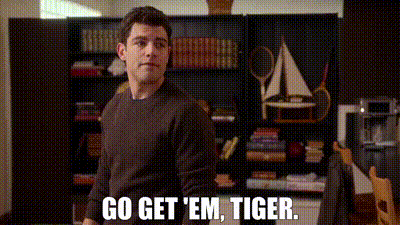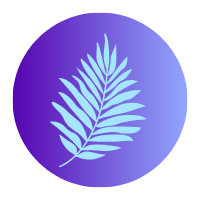How to Prepare for a College Interview or Job fair
If you want to score your dream job or college spot, you gotta attend career fairs and interviews. But, to crush it at these events, you need to prepare like a boss. Here are some tips to help you get ready

Its not what you know, its who knows you! - Title of a Book by David Avrin
When it comes to showing off who you are professionally and personally, you've got a few tools at your disposal: resumes, interviews, college applications, and LinkedIn profiles. If you're keen to make some connections and land your dream job or college spot, you might want to hit up career fairs and college interviews to get chatting with some hiring managers or alumni. Here's the tea on how to prep for those all-important convos ☕
Step 1 - Dress to Impress 🤵🏾👩🏾💼
Always dress appropriately, which means dressing comfortably and conservatively. Most career fairs have a dress code that will be listed in their event information weeks before it happens. Interviews and Career Fairs typically are business casual. For formal job interviews, be prepared to dress Business/Business Formal. From Understand the differences between "business casual" and "business formal." Here is a diagram you can reference if you're unsure where you might fall in different interview and career fair attire.

Step 2 - Bring a Copy of Your Resume & a Pen
Always Bring a Resume 📄
Bring your resume to a job fair. Recruiters will likely ask for it, and having it on hand shows that you're prepared. Print it on standard paper and don't worry about buying fancy resume paper. Recruiters usually scan and discard resumes after the event.
College interviews should also be included in this. Bring a resume and a pen but as a just in case measure. The interviewer from a University may not ask for a paper copy.
If you need help starting a resume, head over to our resources page to get our resume template!

Why Bring a Pen? 🖊
Taking notes when speaking with someone at a job fair shows interest and helps you remember important points. Jotting down conversation points after speaking with a recruiter can help you follow up via email or ask better questions during the interview.
Step 3 (Career Fair Guidance Only) - Research the Businesses in Attendance 🔍
To make the most of a career fair, research the companies and roles that interest you. Let the recruiters know you're prepared and enthusiastic about their company. Practice with lower-priority companies first, and take notes on important points. By doing this, you can build confidence and increase your chances of performing well with your target audience.
Step 4 - Collect Contact Info & Business Cards 📋
Focus your time after speaking with any representative of a business or university to connect and gather information from them. This relationship can serve you in the long run since this person may be an advocate for you, as well as provide you with tips and feedback.
The Flyer
Brochures are essential tools for evaluating job opportunities. They contain a company's marketing, information, and contact details, all designed to pique your interest in working for them. Make sure to collect brochures from the businesses that are relevant to your industry. Avoid collecting them from every single business. The brochures often have a specific link that you can use to apply for the job, which increases your chances of landing the position.
The Business Card
A business card from a hiring manager, recruiter, or university alum is highly valuable. It's a sign that they want to stay in touch. Make sure to thank them for the card, double-check that the contact information is correct, and store it immediately in your wallet or purse. This is an international sign of gratitude and respect.
Step 5 - The Follow Up 📧
Send a Thank You email or apply for the position within 48 hours after the career fair. If a recruiter asked you to call, do so during business hours and leave a message if they don't answer after one call.
Example of a follow up Email or Call:
Dear [Name],
I just wanted to take a moment to thank you for taking the time to discuss your open [position name] position with me. I appreciate the opportunity to learn more about the role and [organization name], and I'm excited about the possibility of working together.
Your insights into the job requirements and company culture were invaluable, and I found our conversation about [conversation topic] to be engaging and informative. I look forward to continuing the conversation and exploring ways in which I can contribute to your team.
Once again, thank you for your time and consideration. I hope to hear from you soon.
Best regards,
[Your Name]
Now that's it.

